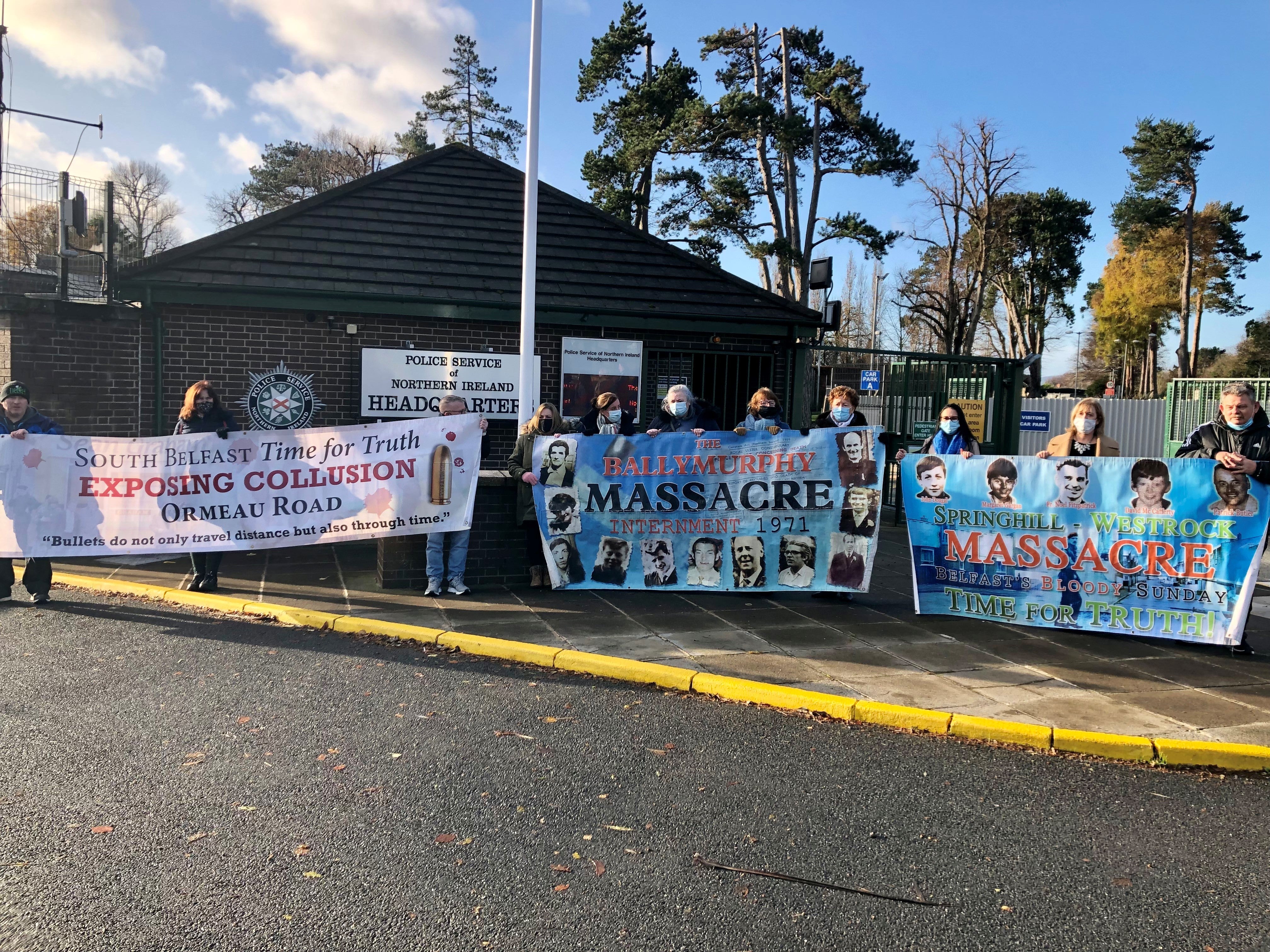Relatives of Troubles victims protest against Government legacy plans
Demonstrations took place at Stormont House and PSNI headquarters in Belfast.

Relatives of Troubles victims have held protests at Stormont and police headquarters to voice opposition to controversial plans to end prosecutions linked to the conflict.
The demonstrations outside the Northern Ireland Office at Stormont House and the nearby PSNI HQ in east Belfast were timed to mark International Human Rights Day.
People who lost loved ones in incidents involving the security forces were among those who took part.
Letters were handed in to outline the relatives’ views. At PSNI headquarters, Assistance Chief Constable Alan Todd came out to speak to some of the protestors and receive the letter.
The demonstration at Stormont House focused on the Government’s contentious legacy plans while the protest at the PSNI HQ criticised ongoing delays in resolving long-running cases.
Claims that the authorities are trying to cover up their involvement in past crimes were aired.
In July, the Government published a command paper outlining its intention to prohibit future prosecutions of military veterans and ex-paramilitaries for Troubles incidents pre-dating April 1998.
Contending the criminal justice route was not delivering for victims, the command paper said a move to a new truth recovery model would help bereaved families gain information about the deaths of their loved ones.
The Government has not yet published draft legislation that would give effect to the plan, having previously indicated it would be tabled in Parliament in the autumn.
Friday’s protests were organised by the Time for Truth campaign.
Campaign spokesman Niall O’Murchu heavily criticised the Government’s legacy plans.
“Domestically and internationally in law they have been discredited and yet it looks like the British government are just going to railroad them through,” he told the PA news agency.
“They’re outrageous, they’re worse than anything that happened under (General) Pinochet in South America many years ago.
“And, internationally, they are the worst set of legacy proposals in terms of any post-conflict situation.
“They’re just absolutely outrageous.”
Prime Minister Boris Johnson has said the Government plan will allow Northern Ireland to “draw a line under the Troubles”.
The proposals also envisage an end to all legacy inquests and civil actions related to the conflict.
They are opposed by all the main parties at Stormont, the Irish government and many victims groups.
In 2014, the UK and Irish governments and a majority of Stormont parties agreed to a range of proposals to deal with legacy issues, including a new independent investigations unit to probe unsolved killings.
Those Stormont House Agreement measures have never materialised amid years of political wrangling over the thorny issue of the region’s troubled past.
The Government’s plan represents a significant unilateral step away from the Stormont House structures